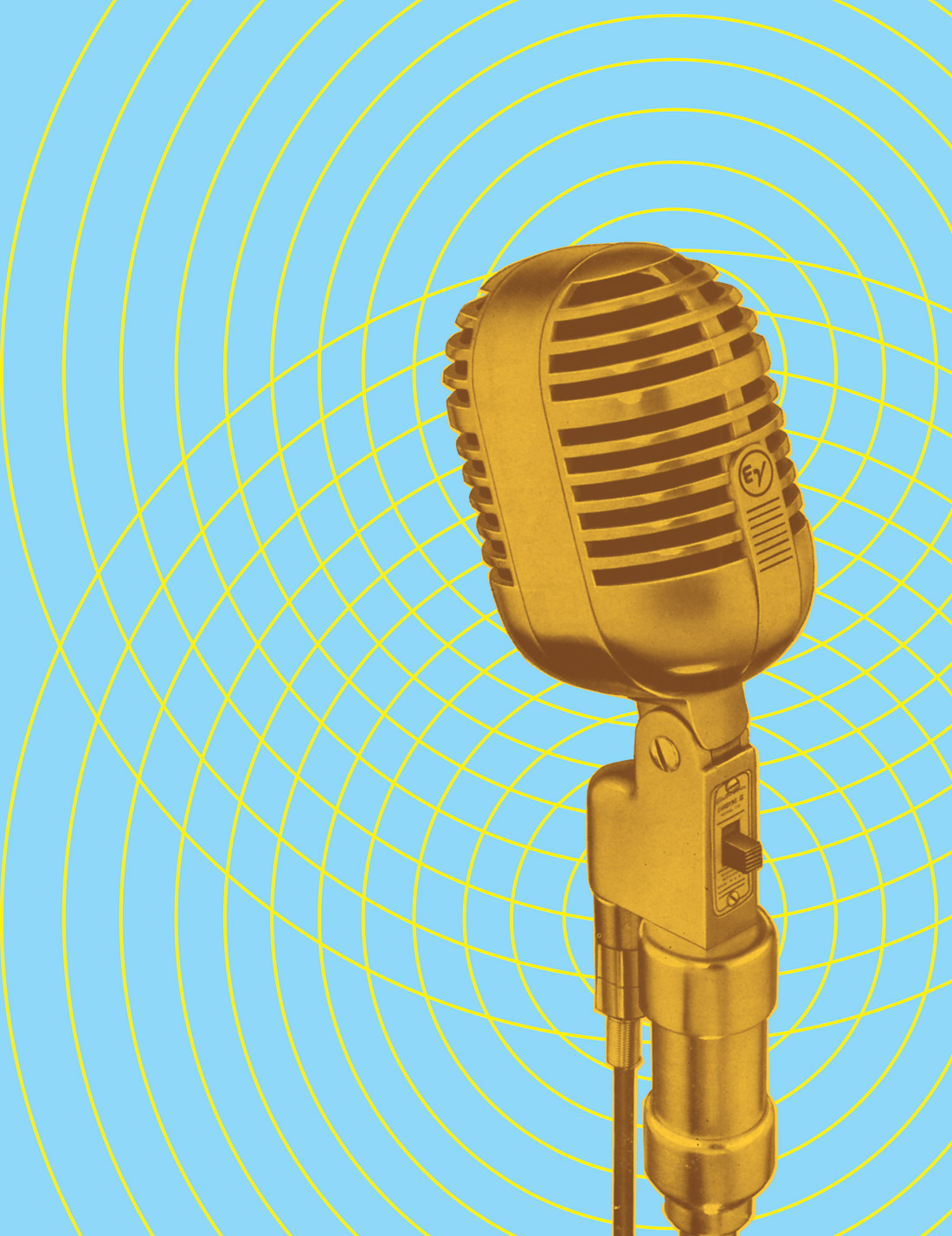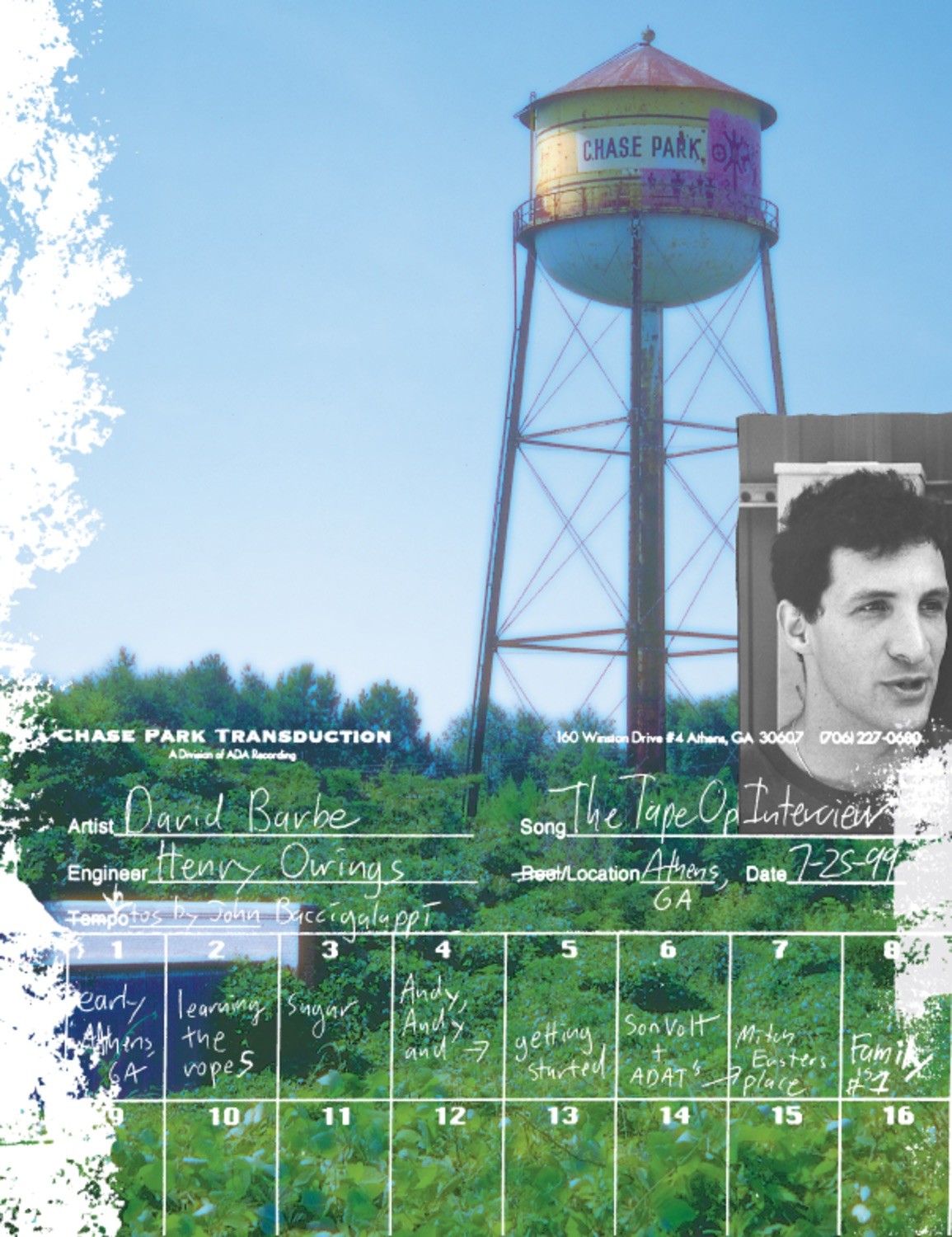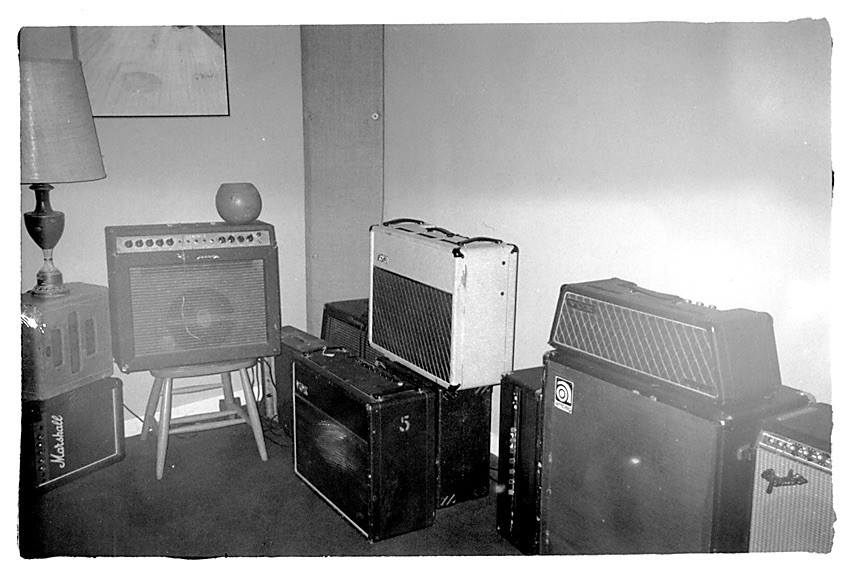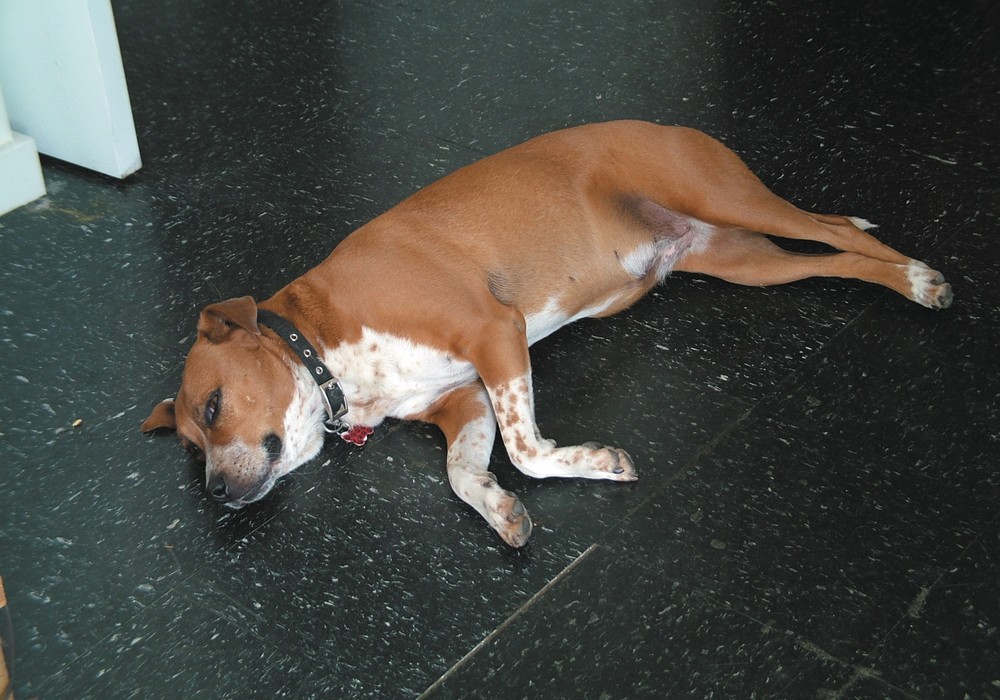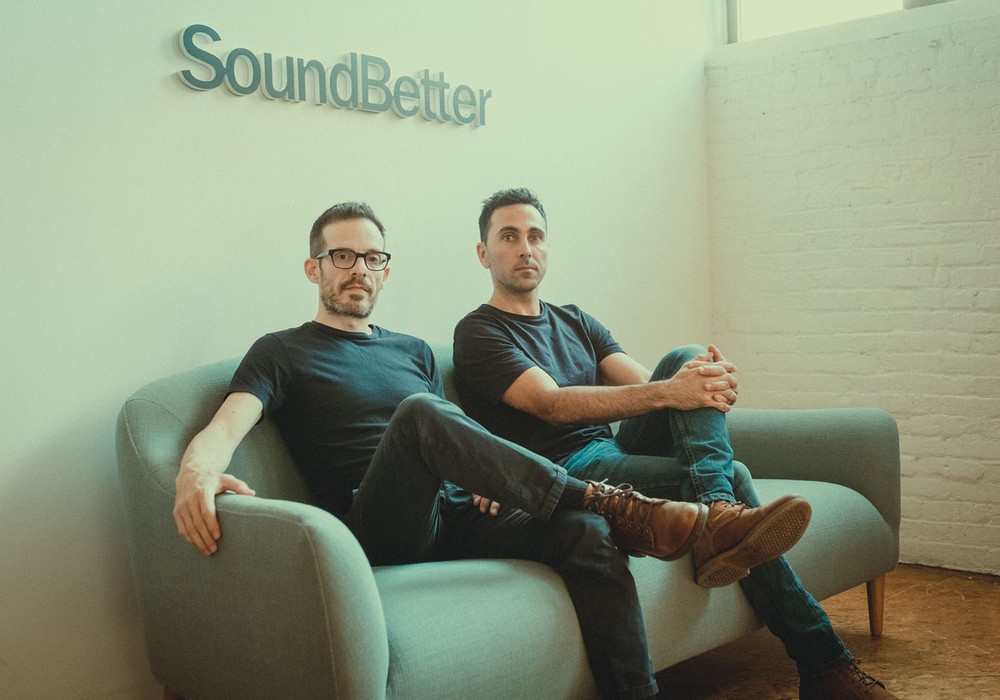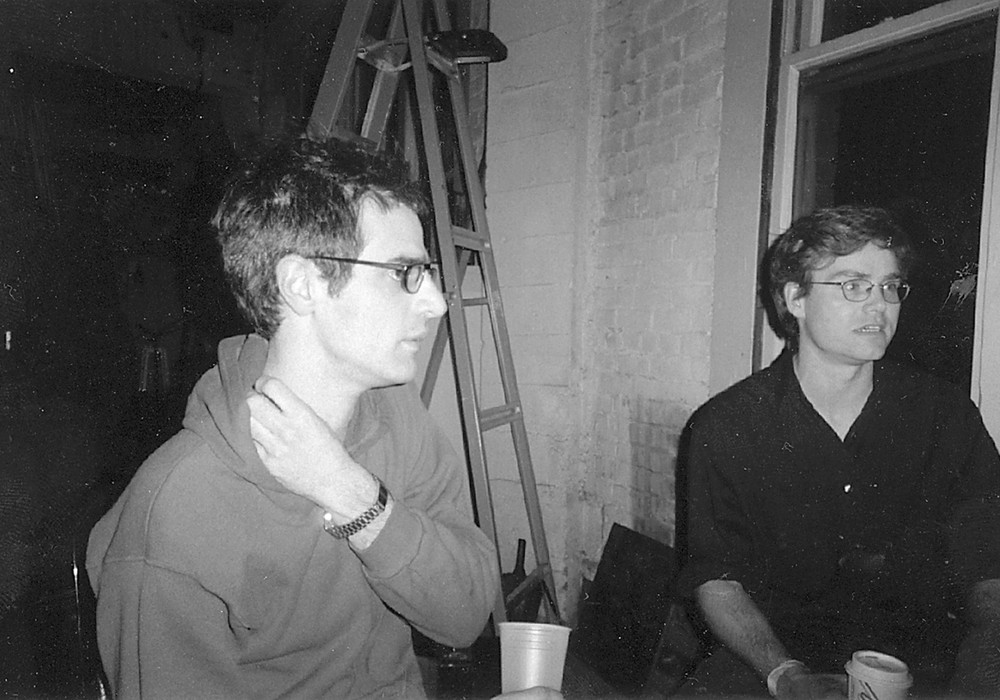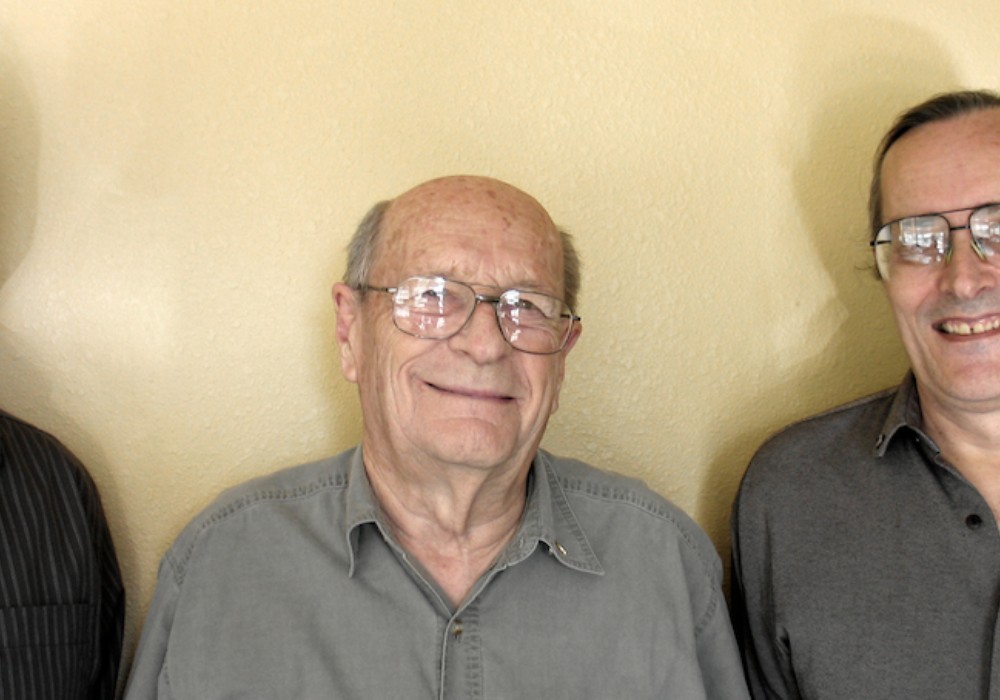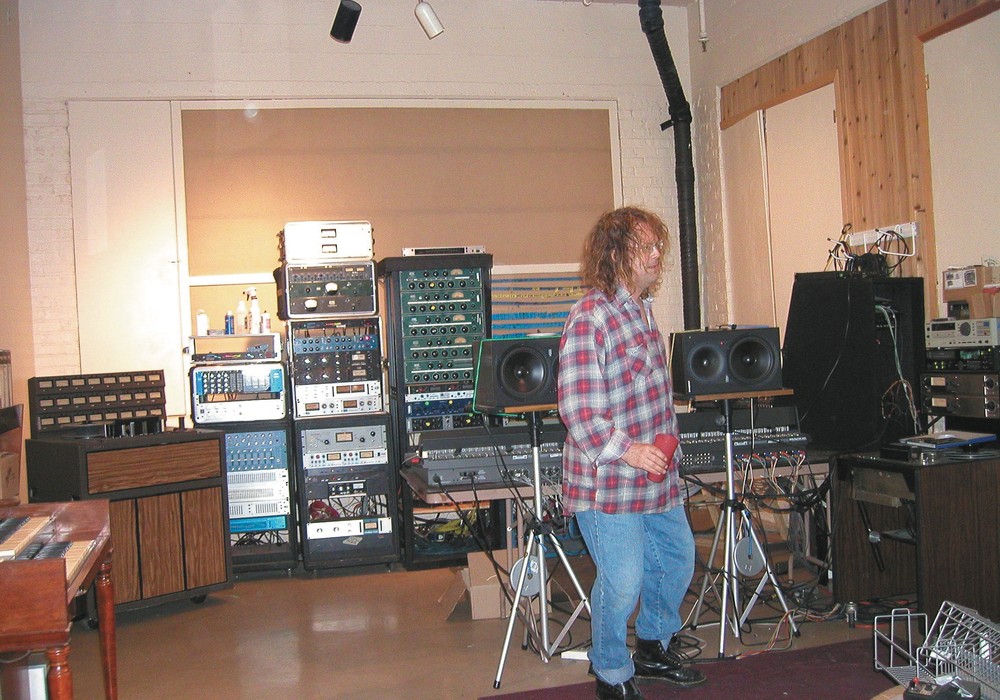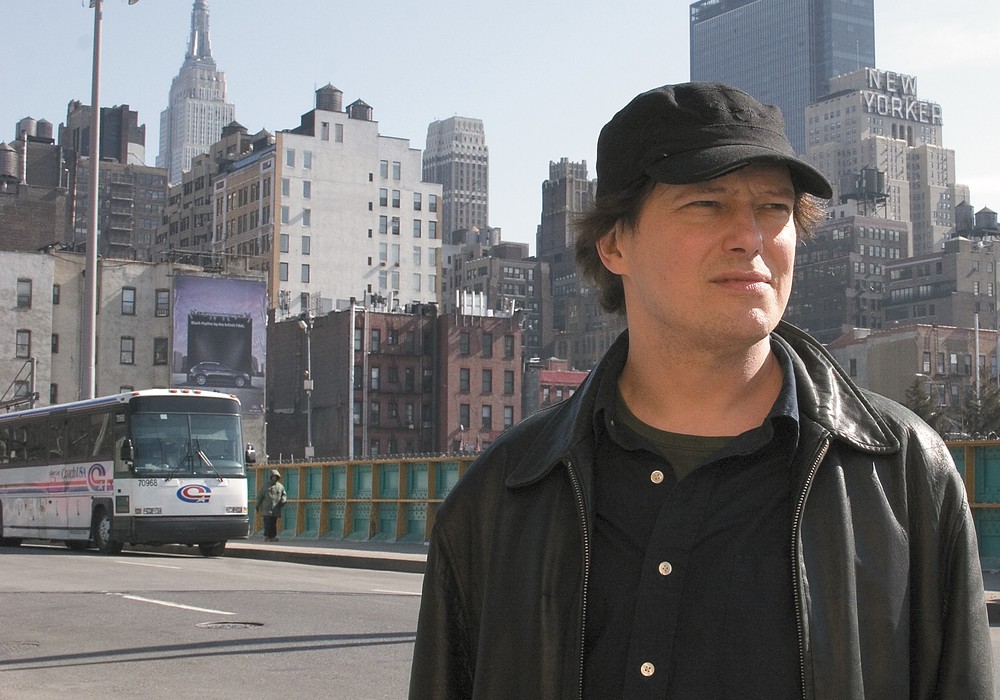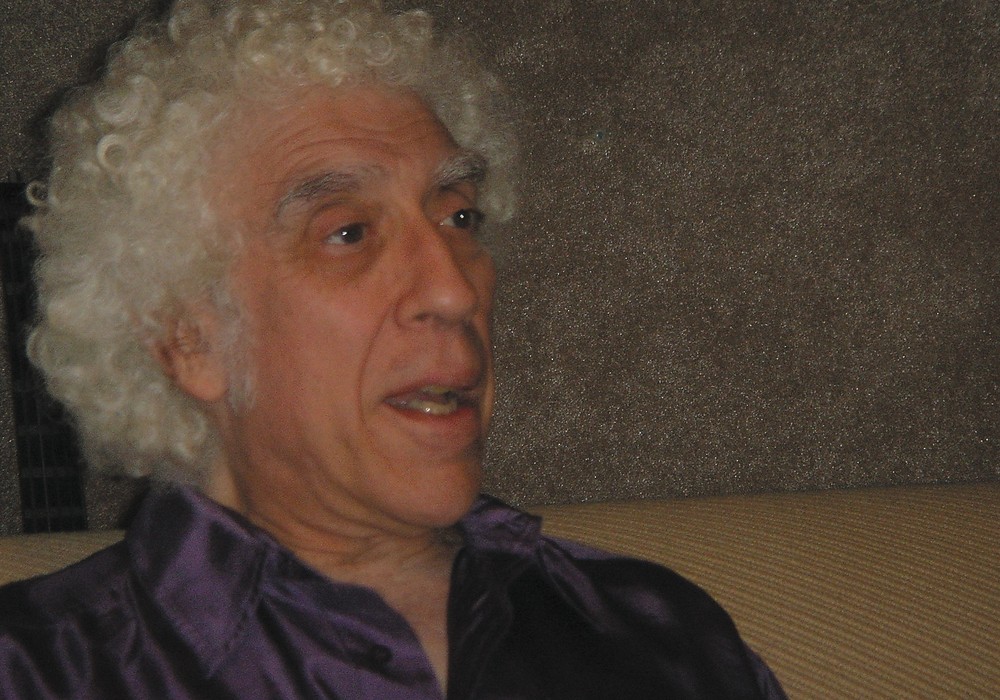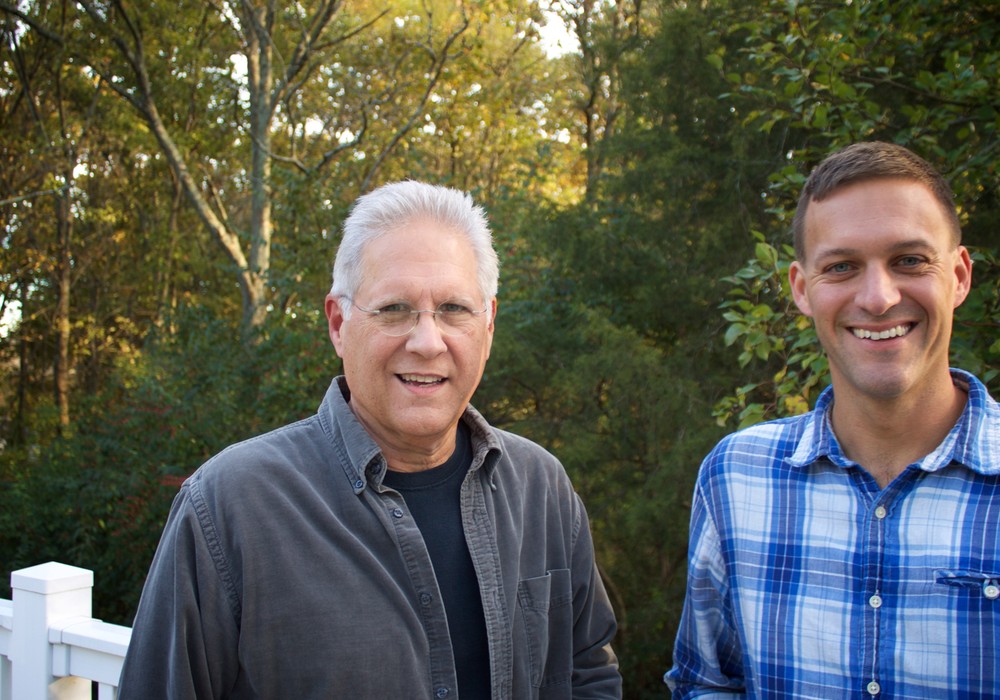David Barbe is no less than a living legend in Athens, Georgia.
Coming from the 'old school' Athens (and still being of sound mind to remember most of it), he is known for any one of a number of his musical endeavors. First starting off with the punk rock standard bearers Mercyland, then then a brief stint in the Scratch Acid influenced Bar-B-Que Killers, then onto Buzz Hungry and then, in the midst of it, an excursion (if you can call four years "an excursion") with Bob Mould as bassist in Sugar.
Of course what is of greater importance to Tape Op readers is the fact that he's probably more well known for his recording prowess with bands as varied as Son Volt, Macha, and any one of the more seedy, crusty bands on the underbelly of the Athens music scene (ck. Harvey Milk, Skinner pilot, etc).
A couple of years ago, David, along with fellow Athens recording engineers Andy Baker and Andy Lemaster, colluded to form Chase Park Transduction on the outskirts of Athens. Since then, business and their clientele have been growing very well, thank you very much. As Tape Op readers will no doubt notice, what I lack for in technical knowledge, I make up for in sheer volume.
So without further ado...
So you've been in Athens since '81, did you come to school here?
Yeah I grew up in Atlanta and then moved out here to go to school. If you like rock music it was a pretty great time to move to Athens. I played in a bunch of local bands around here and started Mercyland in '85 and that's when I got serious about it. [Back then] there were only about 20 or 30 local bands and even though there are better bands now, it was exciting because it was a genuine under- ground. [After Mercyland,] Buzz Hungry start- ed and six months after that, Bob [Mould] called and I started doing Sugar. So Buzz Hungry from '91-'96, Sugar was from '92-'95, sort of tucked there in the middle.
At what point did you start recording Mercyland?
Well, I had been recording stuff since I was a child, my parents were musicians and they were in the jingle business. So I've been in studios forever. I cannot remember not being in a studio. I recorded my bands as soon as we had real drums and amps. When I was about 12 or 13, I'd be recording shit in the basement. Up here, though, Mercyland went into the studio three weeks after we were a band. We had written some songs in '85 and I had been recording other people's bands on my four track before then. I was a really avid our tracker, and had a little set up in the back of my house. We would go to people's practice spaces and record. That kind of gave me the idea that I knew what I was doing, even though I really didn't. Right after Mercyland got to go into the studio, the BBQ Killers went to John Keane's [#65]. I went over there with them as "the producer," even though I didn't know what the knobs and the buttons in the studio did. I was just to be the guy to say; "Okay. That sounds good do it like that." Or, "You can play it better. The snare drum sounds weird." Once I did that, I was constantly telling people I knew more than I really did so I could go into the studio with them. So I went into the studio with a ton of bands to help without knowing shit about engineering. Most well- known being the BBQ Killers and the Jack O'Nuts and a ton of others that have since fallen by the wayside. I was also more and more, obviously, not doing the Mercyland recording. So [in '91] when Mercyland broke up, John Keane called me up and said he realized he had a need for a second person to work in his studio. I had been in that studio enough times to know just enough so that I could identify what I thought was a good drum sound from a shitty one and I could identify what I thought was in tune and out of tune. Basically, I knew what I needed to know about making some pretty rudimentary recordings, I just didn't have the knob twiddling skills. So I went over there and interned with him for a few months and then went to the Recording Workshop in Ohio, where John had been years before, which basically amounted to a six week crash course which was the greatest thing. The first five weeks were basic recording theory and technique. It's a lot better than some of these other things where you go to school for two years and you have to take all these other classes that are somewhat related to recording music, but cover a much broader spectrum so they can charge a lot more money that way.
Was this like a recording engineer's boot camp?
Basically. Depending on your studio schedule for the day you would go from either like 9 AM to 9 PM with a couple of breaks tossed in there or from like noon to at least midnight or one. It was great, they really stressed signal flow, how the sound...
